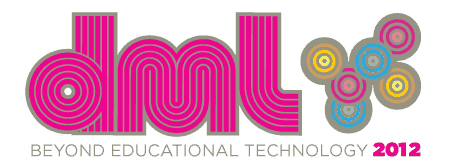RML: Learning In and Around Games: Minecraft as Affinity Space
Few digital media artifacts become cultural phenomena, but sometimes they become so popular with international audiences that they become cornerstones of digital experiences. Minecraft, an independently-developed PC game, gained such fame over the past year, attracting millions of players and gaining a world-renowned reputation for excellent gameplay, intriguing game environments, and extensively participatory game experiences. Minecraft has also become a site for immersive and interactive learning, as teachers begin to adopt it for in-class activities, clubs pop up at schools around the world, and both kids and adults (even parents!) come together in diverse online forums, video sharing sites, and communities.
So what potential does Minecraft have as a learning opportunity? This panel will explore how Minecraft epitomizes James Gee's concept of the affinity space: a place where diverse forms of informal learning take place in the game and around it, where individuals -- especially kids -- have the chance to develop various digital competencies and learn from peers.
This panel will look at how the popularity of Minecraft makes it a strategic object to be adopted as a learning tool, both in and out of the classroom. First, we'll examine why Minecraft has come to be so popular, especially exploring practices around the game and the theoretical implications of Minecraft's unique cultural moment (especially the role that social media plays in establishing learning networks), with dozens of online communities, thousands of conversations, and even millions of videos on YouTube. We'll look at skills that kids can learn as they participate in these communities, from information sharing and socializing to video editing and game modding. Then the panel will discuss implementations of Minecraft as a learning tool in educational settings with three practitioners and the lessons they have learned over the past few months teaching kids and fostering networks for education. Finally, we'll actually demo Minecraft live for the audience and talk about opportunities to help teachers adopt the game for their own educational settings.



